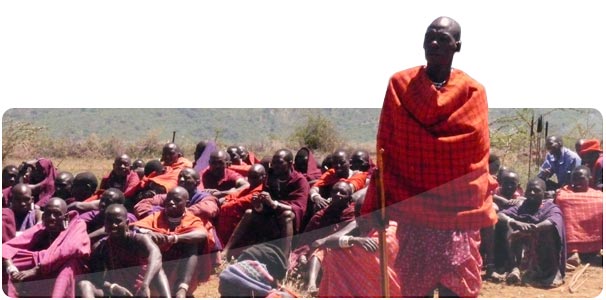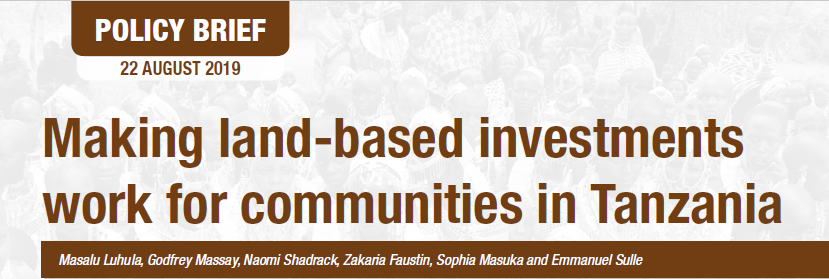Conservation Body Expresses Concern to Tanzanian President that Loliondo Land Decision is Not Pro-Conservation

May 22, 2013
An international consortium of local communities, indigenous peoples and NGOs express concern to the Tanzanian Government that the proposed Loliondo GameControlled Area (GCA) will threaten both conservation and local livelihood interests.
In a letter addressed to President Kikwete, the Minister of Natural Resources and Tourism (MNRT), and others, the consortium says they are deeply concerned that excising 1,500 km2 of disputed land from community access "could only have a major negative effect on local livelihoods and social wellbeing." Furthermore, the letter states, "it could create a serious and lasting impediment to sustainable conservation practices in the broader Serengeti region."
This is the first official statement made by a conservation-focused body that isrequesting the government reconsider its position. In March this year MNRT announced their plan to set aside 40% of the total area of Loliondo Game Controlled Area as a wildlife corridor, which would prohibit community residence or livelihood activities on the most important section of land for grazing and water access. The government has consistently defended their position citing wildlife and ecological conservation as the driving force behind the decision.
In recent weeks there has been a lot of attention brought to the matter, particularly from the local communities that will be affected by this decisions and human rights groups who claim this decision will negatively impact the local communities that have rightful ownership to the land. Although advocates have pointed out the Maasai's contribution to conservation in the area, the ICCA Consortium is expressly noting concern that this new land allocation could negatively harm conservation efforts in the area, countering the government's rationale for their decision.
The group, known as the ICCA Consortium, promotes global recognition of, and support to, areas conserved by indigenous peoples and local communities (ICCAs). It is a partner organization of the Convention on Biological Diversity, the United Nations Development Programme and the International Union of Conservation of Nature (IUCN).
The ICCA Consortium says they are particularly concerned with the decision because according to Tanzanian legislation and customary law, the land is the rightful land of communities in Loliondo, and these communities have "a track record of conserving wildlife and other natural resources through their indigenous rangeland management practices."
In the letter the Consortium also highlights international standards - of which the Tanzanian government is observers to - that recognize that effective and sustainable conservation should take into account and is compatible with sustainable livelihoods and collective rights of local communities. This includes policy statements by IUCN, the Convention on Biological Diversity and the African Commission on Human and People's Rights.
The ICCA Consortium hopes to see a positive resolution in Loliondo that will promote both sustainable livelihoods and conservation interests. It recommends that the Government of Tanzania:
- "promote a resolution of the current conflicts in Loliondo in a way that takes into account international policy and best practice for conservation, sustainable livelihoods, poverty eradication and the respect of human and indigenous peoples' rights..."
- "utilize its own existing policy mechanisms - such as WMAs - to achieve a reconciliation of wildlife conservation, sustainable livelihoods and community land rights for Loliondo in particular and for the Serengeti Ecosystem in general."
Contacts:
Jessie Davie - Communications Director, Maliasili Initiatives
jdavie@maliasili.org | +31 655 777 930
Notes to Editors:
ICCA - Indigenous Peoples and Local Communities Conserved Areas and Territories
WMAs - Wildlife Management Areas
The entire ICCA Consortium letter can be found here.
More information about the Loliondo land use conflict can be found at the following links:

